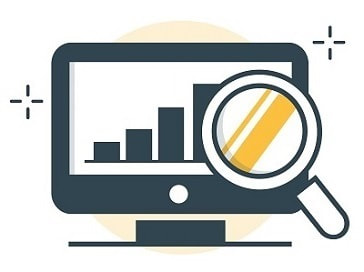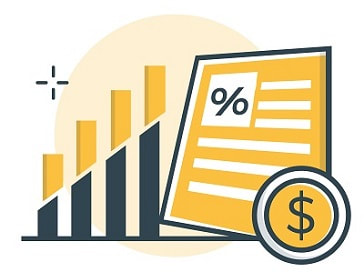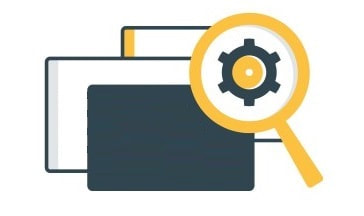BlackBull Markets Share Trading Platform Review
Our guide outlines BlackBull Markets' share trading platform, its features, brokerage and FX fees, pros, cons, comparisons with alternatives like Sharesies, Hatch and Stake. We also look at the platform's safety and how it generally compares to Interactive Brokers.
Updated 17 July 2024
Please note this review relates to the 2022-launched BlackBull Markets Share Trading Platform, which is separate from the CFD-focused platform offering forex, indices, precious metals and energy products with high leverage. For a review of BlackBull Markets' CFD brokerage, please read our review here.
Please note this review relates to the 2022-launched BlackBull Markets Share Trading Platform, which is separate from the CFD-focused platform offering forex, indices, precious metals and energy products with high leverage. For a review of BlackBull Markets' CFD brokerage, please read our review here.
BlackBull Markets Share Trading Platform Summary
Our guide covers:
- BlackBull Markets Share Trading platform launched in January 2022 and is an additional but separate service to their CFD and FX trading platform. This review focuses on the share trading platform.
- Unlike Hatch, Sharesies and Stake, which focus on Australia, New Zealand and/or the US markets, BlackBull Markets offers access to 23,000+ shares from 80+ global markets in one single integrated account. This makes it unrivalled by any other New Zealand-based service when it comes to investment opportunities.
- Other investing options (with a US focus): Superhero offers US$2 trade fees, and Tiger Brokers offers low FX fees; our Superhero Review and Tiger Brokers Review explain more.
- Interactive Brokers provide the investing infrastructure (website, ordering etc.), but with BlackBull Markets running the platform, clients benefit from local New Zealand support teams.
- The fees charged are the lowest available (and the savings are significant) compared to the established Hatch, Sharesies and Stake for investments.
- BlackBull offers an app on Apple and Android.
- In-House Research - In August 2022, BlackBull Markets acquired research firm ATM Strategy Research, an Auckland-based company founded by Hamesh Sharma, Pathfinder's portfolio manager. The purchase of ATM established BlackBull Research which focuses on NZX, ASX, and US shares. The service is free for one month and then $45 per month thereafter (or $450 per year).
- In a Nutshell: BlackBull Markets Share Trading is a low-cost offering that brings the best features of Interactive Brokers while adding in the NZX. It also offers the lowest fees (with BlackBull matching IBKR's pricing) and every client can access New Zealand-based client support. The fees, outlined in the table below, are a fraction of those charged by Sharesies, Hatch and Stake when it comes to US shares.
- Overall, we believe BlackBull Markets is likely to appeal to investors of all experience, although arguably, the interface will appeal more to those with investing knowledge and more money to invest.
Our guide covers:
- BlackBull Markets in a Nutshell - Accounts, Investing Options, Adding and Withdrawing Funds
- Fees (Brokerage and FX)
- Other Features and Background - Share Transfers, Security, Support and Company Ownership
- Pros and Cons
- The Competition – BlackBull Markets vs Stake, Hatch, Sharesies and Interactive Brokers
- Frequently Asked Questions
BlackBull Markets in a Nutshell - Accounts, Investing Options, Adding and Withdrawing Funds
BlackBull Markets offers ultra-low trading fees with an extensive range of investment options thanks to its access to Interactive Brokers' infrastructure.
We outline the options for New Zealanders and the costs involved in converting NZD into USD and other currencies you'll invest with:
We outline the options for New Zealanders and the costs involved in converting NZD into USD and other currencies you'll invest with:
What can I invest in using BlackBull Markets?
Investment products include shares/stocks/ETFs from the following regions' main and alternative sharemarkets:
Beyond shares and ETFs, BlackBull Markets offers global access to:
- North America: USA, Canada and Mexico.
- Europe: Austria, Belgium, Estonia, France, Germany, Hungary, Israel, Italy, Lithuania, Latvia, The Netherlands, Norway, Poland, Portugal, Russia, Spain, Sweden, Switzerland and the UK.
- Asia Pacific: New Zealand, Australia, Hong Kong, India, Japan, Singapore and South Korea.
Beyond shares and ETFs, BlackBull Markets offers global access to:
- Options
- Futures
- Forex
- Bonds
- Mutual Funds
- Selected cryptocurrency ETFs (focusing on Bitcoin, Ethereum, Litecoin, among others)
Funding an Interactive Brokers Account - Deposits and Withdrawals to and from New Zealand Dollars
Deposits into the BlackBull Markets' platform:
Withdrawals out of the BlackBull Markets' platform:
- BlackBull Markets supports bank transfers from all New Zealand banks. Timing-wise, deposits clear into your account within one business day, although it can be within hours for bank to bank. For example, funding from ANZ to ANZ (BlackBull Markets' bank account) can take less than one hour for clients who use ANZ.
- There is no deposit limit. Helpfully, BlackBull Markets provides step-by-step instructions on the deposit process, and the guidance is straightforward to follow.
- Deposits will arrive in your account as NZD. When you are ready to trade, BlackBull Markets converts the NZD into foreign currency to cover the purchase of overseas investments.
Withdrawals out of the BlackBull Markets' platform:
- There are no limits for withdrawals via bank transfer, nor are there any fees charged.
- Each withdrawal will be translated at the market exchange rate on the day.
Fees (Brokerage and FX)
BlackBull Markets charges different fees depending on what markets you're trading in. For the purposes of this review, we look at US markets, ASX (Australia) and New Zealand's NZX and see how brokerage (e.g. trade fees) and foreign exchange fees (for converting your NZD to the sharemarket's local currency) cost.
1. US Markets
Example trade and costs: Investing USD 3,000 in Apple will cost around USD 3 in fees (1 USD brokerage) + 2 USD (foreign exchange). This calculates to a 0.10% trade cost. Additionally, the USD 12 fee would be the same if a USD 10,000 or even USD 20,000 investment was made, given the low brokerage fees and capped Foreign Exchange fees (based on an Apple share trading at USD 175).
2. Australian Markets
Example trade and costs: Investing AUD 3,000 in Telstra will cost around AUD8.85 in fees (6 AUD brokerage) + 2.85 AUD (foreign exchange). This calculates to a 0.295% trade cost. A trade over AUD 7.50 will increase the brokerage cost above AUD 6 (and will be charged at 0.08% of the total value).
3. New Zealand Markets
Example trade and costs: Investing NZD 3,000 in Spark will cost NZD 9 in fees. A trade over AUD 9,950 will increase the brokerage cost above AUD 9.95 (and will be charged at 0.10% of the total value).
We compare the costs of different trades below for Hatch, Stake, Sharesies, Superhero and Tiger Brokers.
Important: Before signing up to BlackBull Markets, you may want to consider another low-priced broker such as Interactive Brokers or Tiger Brokers (NZ), as well as Hatch, Stake or Sharesies. Additionally, Superhero offers US$2 trade fees, and Tiger Brokers offers low FX fees; our Superhero Review and Tiger Brokers Review explain more.
1. US Markets
- Brokerage: USD 1 or USD 0.005 per share, whatever is the highest.
- Foreign Exchange: Minimum 0.002% of trade value or 1 USD (whatever is the highest).
Example trade and costs: Investing USD 3,000 in Apple will cost around USD 3 in fees (1 USD brokerage) + 2 USD (foreign exchange). This calculates to a 0.10% trade cost. Additionally, the USD 12 fee would be the same if a USD 10,000 or even USD 20,000 investment was made, given the low brokerage fees and capped Foreign Exchange fees (based on an Apple share trading at USD 175).
2. Australian Markets
- Brokerage: AUD 6 or 0.08% of the trade volume, whatever is the highest.
- Foreign Exchange: AUD 2.85 or 0.002% (whatever is the highest).
Example trade and costs: Investing AUD 3,000 in Telstra will cost around AUD8.85 in fees (6 AUD brokerage) + 2.85 AUD (foreign exchange). This calculates to a 0.295% trade cost. A trade over AUD 7.50 will increase the brokerage cost above AUD 6 (and will be charged at 0.08% of the total value).
3. New Zealand Markets
- Brokerage: NZD 9 or 0.20% (< NZD 10,000), 0.12% (NZD 10,000 to 20,000) and then 0.08% on the portion > NZD 20,000, whatever is the highest.
Example trade and costs: Investing NZD 3,000 in Spark will cost NZD 9 in fees. A trade over AUD 9,950 will increase the brokerage cost above AUD 9.95 (and will be charged at 0.10% of the total value).
We compare the costs of different trades below for Hatch, Stake, Sharesies, Superhero and Tiger Brokers.
Important: Before signing up to BlackBull Markets, you may want to consider another low-priced broker such as Interactive Brokers or Tiger Brokers (NZ), as well as Hatch, Stake or Sharesies. Additionally, Superhero offers US$2 trade fees, and Tiger Brokers offers low FX fees; our Superhero Review and Tiger Brokers Review explain more.
Other Features and Background - Share Transfers, Security, Customer Support and Company Ownership
Fees are important, but it's also critical to understand the other features, safety and support:
1. Share Transfers From Other Platforms
- BlackBull Markets offers share transfers in and out of their platform free of charge, but your current broker/platform may still charge you. BlackBull Markets, using IBKR infrastructure, supports ACATS and FOP methods for US shares and other methods for other international shares.
- A transfer notification can be initiated within the client portal if your current broker supports transfers via the ACATS and FOP method. BlackBull Markets does not charge any fees for incoming or outgoing ACATS transfers. However, the sending broker may charge a fee.
- For example, if one is transferring US-listed shares from Hatch, Stake or Sharesies to BlackBull Markets, DriveWealth (Hatch, Stake and Sharesies' dealer/broker) will charge USD 100 on this transfer. You can see the DriveWealth fee schedule here.
- Transfer time will take from 3 – 8 business days, depending on the delivering broker.
- The cost of share transfers varies across different regions and brokers. You can see a full list on the Interactive Brokers website (which operates BlackBull Markets' platform) here.
2. How Safe is the BlackBull Markets Platform?
As with many other US share trading platforms we have reviewed, your BlackBull Markets account, operated on behalf of Interactive Brokers LLC, is protected by:
- The Securities Investor Protection Corporation ("SIPC") for a maximum coverage of $500,000 (with a cash sub-limit of $250,000), and
- Under Interactive Brokers LLC's excess SIPC policy for up to an additional $30 million (with a cash sub-limit of $900,000), subject to an aggregate limit of $150 million.
- Furthermore, Interactive Brokers is a publicly listed entity on the NASDAQ, which means that you can review its financial statements online. On a consolidated basis, IBG LLC exceeds $8.5 billion in equity capital and over $6 billion in excess of regulatory requirements.
- Additionally, the company is regulated by the US Securities and Exchange Commission and the Commodity Futures Trading Commission. Their subsidiaries across the world are regulated by their respective local jurisdiction's securities commission.
3. BlackBull Markets Customer Support
BlackBull Markets offers phone support during trading hours (Monday to Friday, 10am to 11pm), as well as 24/6 live chat.
4. BlackBull Markets Structure and Ownership
BlackBull Markets, incorporated in New Zealand as Black Bull Group Limited, was formed in September 2014 as a derivatives brokerage. It holds a Derivatives Issuers License with the Financial Markets Authority. Its core business specialises in Contracts-for-Difference (CFDs) and FX trading; its share trading platform operates separately and launched in 2022.
BlackBull Markets is ultimately owned by Black Bull Global Limited, an Auckland-based company with three primary shareholders who founded and/or work for BlackBull Markets.
BlackBull Markets is ultimately owned by Black Bull Global Limited, an Auckland-based company with three primary shareholders who founded and/or work for BlackBull Markets.
BlackBull Markets' Pros and Cons
BlackBull Markets offers the best of Interactive Brokers with the addition of NZX shares and has a large number of benefits such as local support and ownership. However, it won't be for every investor. Our extensive list of pros and cons outlines the most important benefits and drawbacks to help you decide if it's suitable for you:
Pros
Cons
Be aware: NZX Investing
Pros
- The product range: BlackBull Markets offers a wide range of financial products (from shares, ETFs and funds) worldwide which is attractive for New Zealand investors looking to invest overseas. Access to 80+ markets is beyond the traditional Australian and US markets as offered by Sharesies and Stake, and US-specific markets of Hatch.
- Low brokerage and FX fees: These vary depending on what sharemarket you're investing. Based on our research, the fees are the lowest offered by any share trading platform aimed at New Zealanders. Customers benefit from market-leading fees; the more you invest, the more you save using BlackBull Markets (vs incumbents Sharesies, Hatch and Stake).
- Wider variety of US-listed shares: BlackBull Markets offers a much wider variety of shares that are not available on other platforms that use DriveWealth as their broker (such as Hatch, Sharesies and Stake).
- Their industry-leading trading platform: BlackBull Markets, through the IBKR infrastructure, provides investors with a wide range of financial products in 80+ markets worldwide, all in one place. They also provide tools for technical analysis, such as charting.
- Limit and Stop orders: You can buy shares at a set price or set an alert to when the share falls to that level. If the market price matches yours or goes lower, your order will be filled.
- Fractional shares: You can buy fractional shares.
Cons
- Technical and complex trading platform: BlackBull Markets offers a platform that has a lot of tools for the user. However, this can add to the complexity of the platform and can be overwhelming for the beginner or novice investor. For some investors, the website is difficult to navigate due to the number of tools and features on offer.
- NZX investments sit separately: BlackBull Markets has yet to integrate NZX shares into its platform; if you're looking to see all of your positions in one place, this is not an option right now.
- Product offering: Beyond share investing and trading, some of the products offered involve a high degree of risk and are not suitable for all investors. Depending on your experience, you may not have access to certain financial products.
Be aware: NZX Investing
- BlackBull Markets offers a traditional brokerage service for NZX-listed investing. This means that clients can call or email to make an order (or sell) request; BlackBulls' team will take this to market and execute
- A receipt will then be generated and provided to the client via email with all the order details (fill price, time, amount, fee etc.).
- In time, BlackBull Markets' portfolio tools will display NZX holdings. However, right now, they're not visible on the platform.
BlackBull Markets vs Interactive Brokers (IBKR) - What's the Difference?
Similarities:
Overall, technology and price-wise, BlackBull Markets' offering is similar. However, there are some key features:
Differences:
- BlackBull Markets uses IBKR for its order management system infrastructure. This is similar to Hatch, Stake, and Sharesies' relationship with DriveWealth for US shares.
- IBKR also develops BlackBull Markets' mobile app.
Overall, technology and price-wise, BlackBull Markets' offering is similar. However, there are some key features:
Differences:
- BlackBull Markets has a local New Zealand presence, holds your NZD locally, and offers around-the-clock New Zealand-based support and personalised account management. By comparison, IBKR doesn't offer any of this, nor it does it avail a New Zealand-listed phone number.
- As a background, many IBKR users have written to MoneyHub's research team to complain about the (lack of) support and remoteness - BlackBull Markets offers the best features of IBKR while providing local support.
- BlackBull Markets also focuses on independent research and client communities, with continuing innovations launching.
- BlackBull Markets offers NZX investing, whereas IBKR does not. However, unlike the rest of the markets offered, BlackBull Markets can take NZX orders, but they are not automated at this stage.
- IBKR is cheaper to trade - the FX commission to fund your account is 0.002%, with a minimum USD 2 transaction fee, while brokerage fees remain low.
The Competition for US Shares – BlackBull Markets vs Sharesies, Hatch and Stake
With brokerage fees from USD 1 (or USD 0.005 per share) and a 0.002% FX fee (minimum USD 2) for trading in USD, we compare BlackBull Markets to other popular platforms available in New Zealand for US markets such as:
The best way to illustrate the difference in fees is by publishing a comparison table below:
- Hatch - US trades incur a flat $3 per order to buy or sell up to 300 shares. After 300 shares, it's $0.01 a share. The FX fee is 0.50%. Hatch includes all regulatory fees as part of its $3 fee. No account fee is charged.
- Stake – US$3 trading fees and a 1% FX fee for balance funding and withdrawing. No account fee is charged for the basic membership.
- Sharesies - 1.9% brokerage fees to buy or sell for orders with a US$5 fee cap. Deposits and withdrawals incur a 0.5% fee on the interbank rate, with no minimum transfer.
- Other investing options (with a US focus): Superhero offers US$2 trade fees, and Tiger Brokers offers low FX fees; our Superhero Review and Tiger Brokers Review explain more.
The best way to illustrate the difference in fees is by publishing a comparison table below:
US Shares - Total Brokerage and Foreign Exchange Fees
- The table below compares US-market investments and calculates that BlackBull Markets is most cost-effective for all trades gives the extremely low brokerage charges.
- When using Superhero, customers are charged NZ$0.50 for every US$100 converted from USD back to NZD. We believe this neutralises the seemingly higher 0.50% fee charged when converting NZD to USD (US$0.50 per NZ$100) for the purchase of US shares or ETFs. For simplicity, we have left the table with a fixed 0.50% fee on USD 500 etc given the offset.
The Competition for Australian Shares – BlackBull Markets vs Sharesies vs Stake
We have compared BlackBull Markets with Sharesies which are the most popular ways to trade. We await Stake's launch for ASX investing for New Zealand customers.
ASX Shares - Total Brokerage and Foreign Exchange Fees
- The table below compares ASX investments and calculates that BlackBull Markets is most cost-effective for all trades. Sharesies has a AUD 15 cap on its 1.9% brokerage charges and a 0.50% FX fee.
- Please note, while Stake has launched its ASX markets for its Australian clients, we're awaiting the launch for New Zealanders, and will update the pricing below when this happens.
- Other investing options (with a US focus): Superhero offers flat AU$5 trade fees, and Tiger Brokers offers low FX fees; our Superhero Review and Tiger Brokers Review explain more.
The Competition for New Zealand Shares – BlackBull Markets vs Sharesies vs Jarden Direct vs ASB Securities
Please be aware that NZX investments sit separately. BlackBull Markets has yet to integrate NZX shares into its platform; if you're looking to see all of your positions in one place, this is not an option right now. However, the pricing offered can arguably offset the offline nature if you're placing larger orders.
NZX Shares - Total Brokerage Fees
The table below compares NZX investments and calculates that BlackBull Markets is most cost-effective for trades greater than $1,800 across all platforms.
- BlackBull Markets Brokerage: NZD 9 or 0.20% (< NZD 10,000), 0.12% (NZD 10,000 to 20,000) and then 0.08% on the portion > NZD 20,000, whatever is the highest.
- Sharsies Brokerage: 1.9% with a $25 cap
- Jarden Direct Brokerage: 0.20% on trades above $15,000, with a $29.90 minimum purchase.
- ASB Securities Brokerage: $15 (up to and including NZ$1,000), $30 (over NZ$1,000 and up to and including NZ$10,000), 0.30% (over NZ$10,000)
NZX Shares - Total Brokerage Fees
The table below compares NZX investments and calculates that BlackBull Markets is most cost-effective for trades greater than $1,800 across all platforms.
Investment (NZD) |
BlackBull Markets |
|||
$500 |
$9 |
$9.50 |
$29.90 |
$15 |
$1,000 |
$9 |
$19 |
$29.90 |
$15 |
$3,000 |
$9 |
$25 |
$29.90 |
$30 |
$5,000 |
$10 |
$25 |
$29.90 |
$30 |
$20,000 |
$28 |
$25 |
$40 |
$60 |
BlackBull Markets Share Trading Platform - Frequently Asked Questions
BlackBull Markets offers many investment options with the cheapest FX and trade pricing in New Zealand for reasonably sized investments. Best of all, we believe the pricing is simple to follow. However, as a new platform, our frequently asked questions below anticipate some common queries for anyone unfamiliar.
Is there an upfront fee to open an account?
No, it is free to open an account with BlackBull Markets. There are no ongoing monthly or membership fees, which is consistent with Sharesies, Hatch, Stake and IBKR.
Is there a minimum investment amount?
There is no minimum; you can invest as little as you like. However, for economies of scale, investments above or around US$3,000 (or NZ$3,000) given the minimum FX fees for US and Australian market trades (NZ$10). For anyone investing in the NZX, there is a minimum NZ$9 trade fee. Full fee details can be found here.
Does BlackBull Markets offer accounts for children?
No - if you're interested in investing with or for anyone under 18, our Investing for Kids guide has more details.
What happens to my funds if BlackBull Markets goes bust?
Client money is segregated in special bank or custody accounts, which are designated for the exclusive benefit of clients of BlackBull Markets, which can be returned to the client in the event of a default by or bankruptcy of BlackBull Markets.










